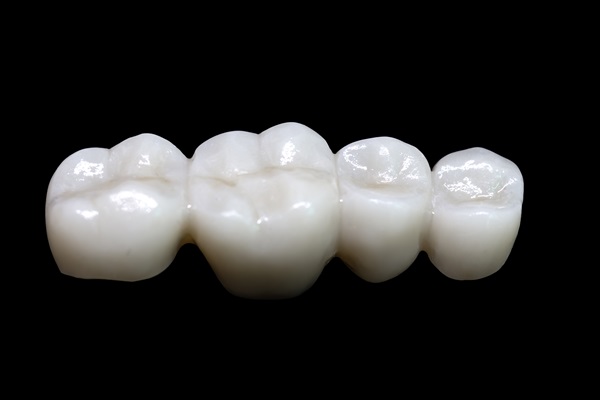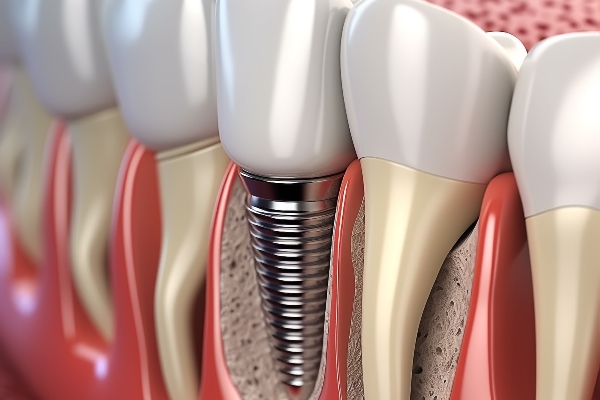 Dental implants are restorations that dentists use to replace missing teeth. Patients interested in this treatment must determine if they are an ideal candidate for this procedure. Systemic health conditions such as low bone density can create challenges for dental surgery. The patient should disclose all health history concerns to the dental team. Together, the patient and dentist can choose a treatment plan that is most beneficial for the patient's unique situation.
Dental implants are restorations that dentists use to replace missing teeth. Patients interested in this treatment must determine if they are an ideal candidate for this procedure. Systemic health conditions such as low bone density can create challenges for dental surgery. The patient should disclose all health history concerns to the dental team. Together, the patient and dentist can choose a treatment plan that is most beneficial for the patient's unique situation.
3 considerations about bone density and dental implants
Conditions that indicate low bone density include osteoporosis and osteopenia. When reviewing the patient's medical history, a dentist may see this condition as a red flag for dental implant surgery. The dentist must discuss these findings with the patient to determine the most suitable treatment.
1. History of bisphosphonate therapy
Patients with osteoporosis or osteopenia may undergo bisphosphonate therapy to manage the condition. Doctors typically render this treatment intravenously. While the IV bisphosphonates help manage damage done by osteoporosis, this therapy can cause dental complications.
After a dentist extracts a tooth, bone fills in the extraction site. In patients who have taken bisphosphonates, though, this does not always happen. When the extraction site is left exposed, necrosis of the jaw can occur, which is painful and difficult to manage.
A dentist may consider prior bisphosphonate therapy a total contraindication to dental implants. If no alternative replacement options are available, the dentist can consult with the patient's physician to determine the right course of action.
2. Bone height and width
When a tooth is missing for a long time, the jawbone in that area may resorb. Essentially, the bone shrinks because it is no longer supporting a tooth. In this situation, the dentist may recommend additional measures before implant placement. The most common adjunctive treatment is bone grafting, which is necessary if the patient does not have ample jawbone height and width.
3. General healing concerns
After a dentist places dental implants, the jawbone fuses to the titanium prosthesis. This fusion, known as osseointegration, is crucial for the long-term success of an implant. The patient's immune response plays a critical role in osseointegration.
Some vitamins and minerals affect bone density. If a patient is deficient in vitamin D or calcium, the jawbone may not respond well to implant placement. In addition, chronic medical conditions such as heart disease and diabetes can cause delayed healing. For this reason, patients should be in adequate health before undergoing this dental procedure.
Conclusion
Dentists began widely using dental implants within the last 50 years. This treatment is highly effective at replacing missing teeth, so it has become the standard of care in most situations. However, medical concerns make other options more practical for some patients. To determine the ideal treatment, the patient and dentist must work together to evaluate the patient's medical history. Those wanting to learn more about this dental prosthesis should consult with a dentist today.
Request an appointment or call Midtown Dental - The Gallery of Smiles at 713-979-4127 for an appointment in our Houston office.
Recent Posts
There are many benefits to dental implants, and once healed, implants look and feel much like natural teeth. Despite these benefits, they may not be the right choice for everyone. It is important to speak with a dentist and consider the current condition of your health before going forward with the procedure.Before you can get…
Dental implants are a permanent solution for replacing missing teeth and restoring oral function. Patients who take the time to understand the implant process enjoy successful outcomes.A dental implant is a titanium post that a dentist anchors to the jawbone to replace a missing tooth root. After the implant successfully integrates with the jawbone, the…
According to the American Dental Association, dental implants are stable because the jawbone grows around them. This process is known as osseointegration, and it is essential for the success of an implant. Several elements can affect this process, and patients undergoing the dental implant procedure should understand what affects an implant fusing to the bone.…










